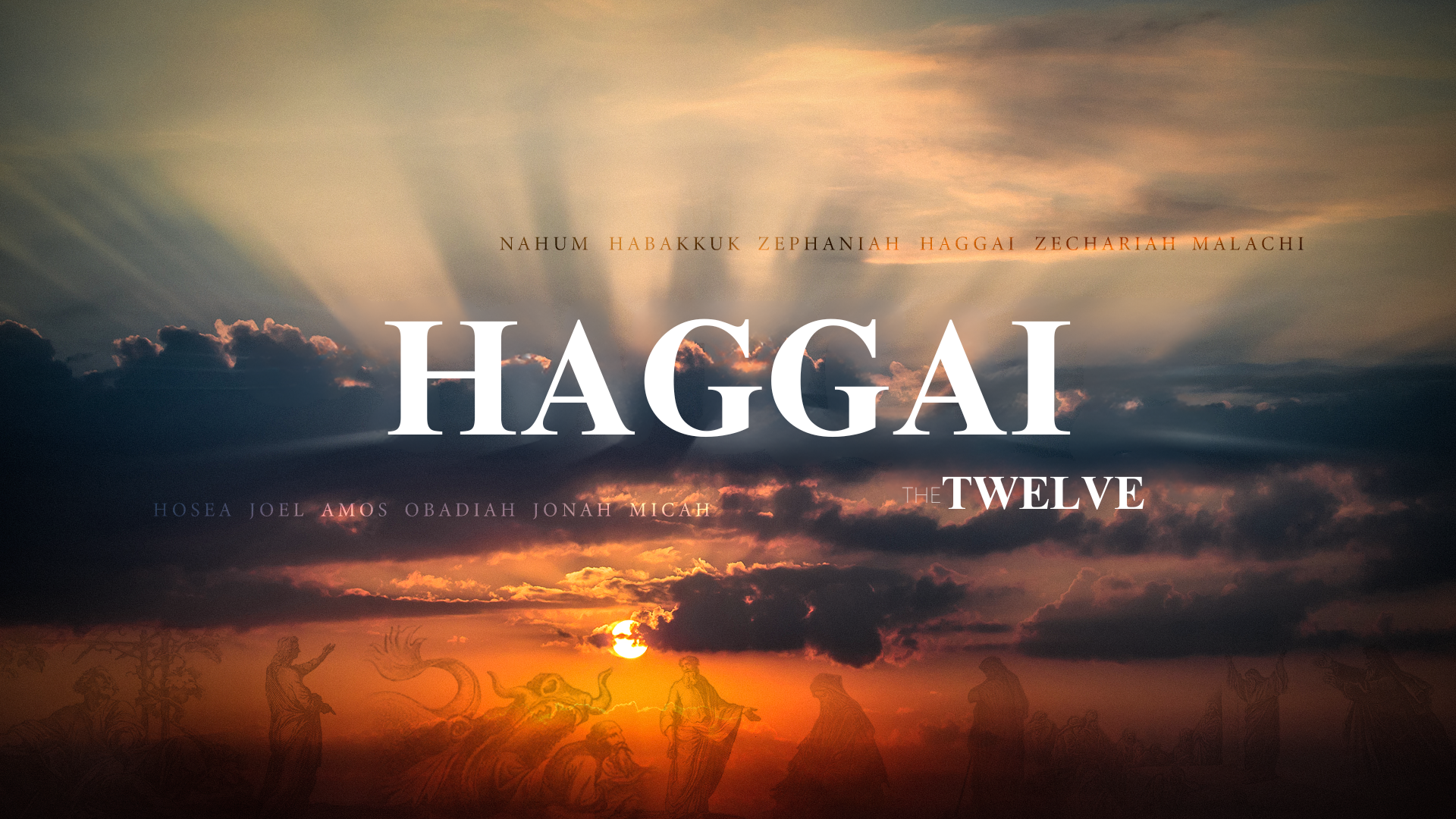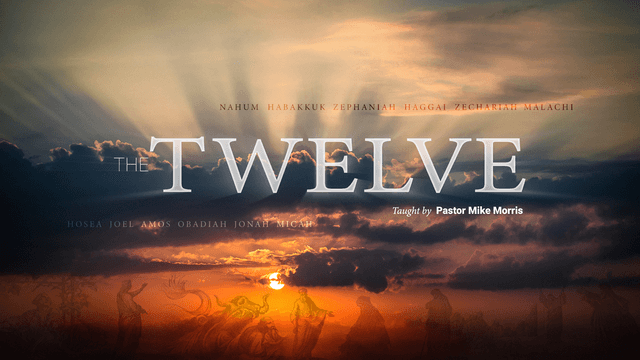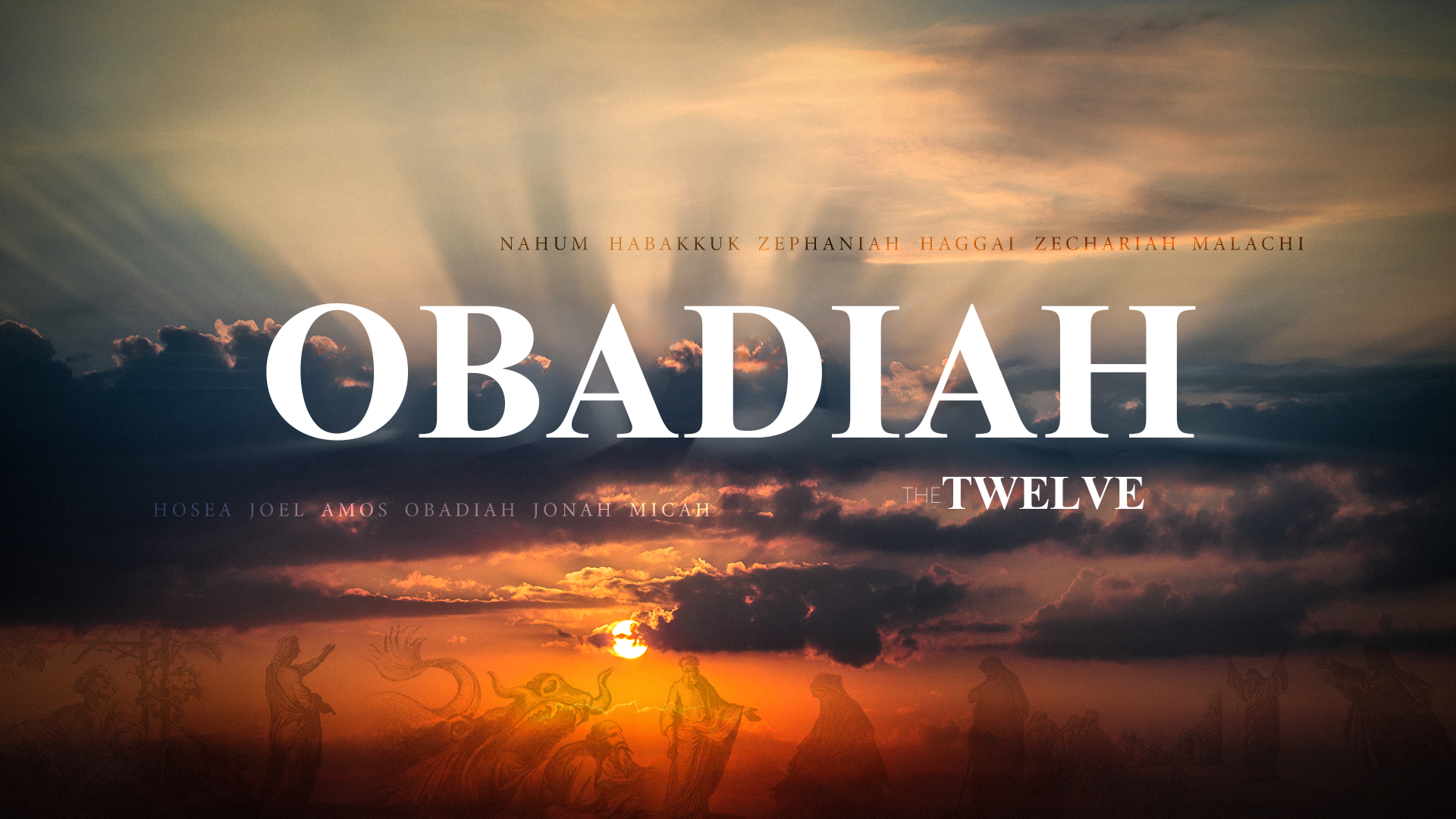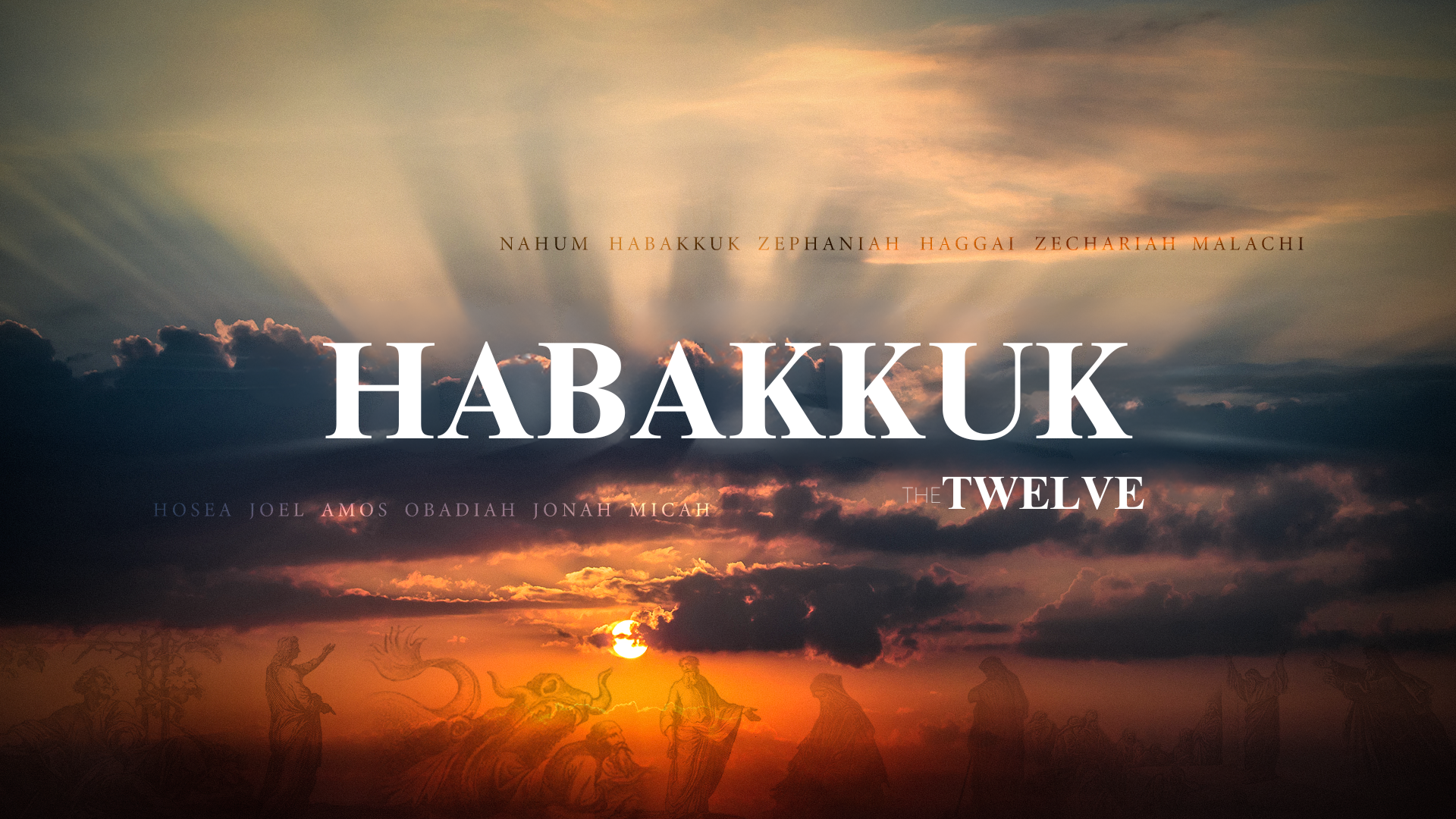MANUSCRIPT
Tonight, we continue our study of the book of Zechariah in chapter seven.
Last week, we studied Zechariah 6.9-15, the coronation of the Priest-King, and we saw the merging of the two mediatorial offices of Israel and their fulfillment in the Messiah, Jesus Christ. Tonight, we return to the second portion of the book, the “words of the Lord”. There are three, and we’ll look at the second one tonight and the third one next week.
The seventh and eighth chapters are actually one extended narrative that begins with 7.1-3, a question from Israelites from Bethel. in the Lord’s response, first He challenges their motive for their observance of fasts in the annual religious life of the people, then He challenges their obedience of the true and important elements of His Law, and warns us of the dangers of relying on religious rituals. All of this applies to us today. Right here, we see three major points where we stumble in our walk with Christ. Failure to obey what we know, failure to obey for the right reason, and relying on the external, not the internal. And the Lord also lays out the consequences for the sins of the people.
The seventh chapter is a rebuke, the kind of rebuke that can, through divine mercy, turn people back toward the Lord. Let’s see what happens. Turn with me to Zechariah 7.1-14.
Question
What question begins this two-chapter narrative?
1 In the fourth year of King Darius, the word of the Lord came to Zechariah on the fourth day of the ninth month, which is Chislev. 2 Now the people of Bethel had sent Sharezer and Regem-melech and their men to entreat the favor of the Lord, 3 saying to the priests of the house of the Lord of hosts and the prophets, “Should I weep and abstain in the fifth month, as I have done for so many years?”
Like Haggai, this word is carefully dated. Two years and a month after the first word of the Lord came to Zechariah in chapter 1, and, according to Ezra 6.15, two years before the completion of the Second Temple in the sixth year of King Darius.
These visitors came from Bethel, which means “house of God” – a fairly well-known city in the original allotment to Ephraim, but, according to I Kings 12, it was notorious for being one of the two idolatrous worship centers for the northern kingdom under King Jeroboam. Israel worshipped a golden calf at Bethel in an effort to keep the Israelites from returning to Jerusalem in Judah to worship. So, to return to our text, a group of men from Bethel coming to Jerusalem to entreat the favor of the Lord is a definitive statement that Israel no longer sought to follow the false gods of the Canaanites, but desired to return to the worship of Yahweh. Now, after the chastening brought on by the Assyrian captivity and the Babylonian exile, a group of representatives from Bethel come to seek the wisdom of the priests and prophets of Judah.
Also, the names of the men are stated for a reason, I believe. In chapter 6, the names of the three Jews returning from Babylon were strong Hebrew names, and the Lord honored their faithfulness by placing the crown of gold and silver in the Temple as a memorial to them. But these men from Bethel have Assyrian or Babylonian, not Hebrew, names, revealing the extent to which the Jewish culture of Israel had been adulterated by the pagan ways of their oppressors. They are received with friendship, though, which shows that the survivors of the two national exiles were, at this point, willing to set aside their differences and both seek after the Lord.
Their question is an interesting one that tells us more about the background here. They asked, “Should I weep and abstain in the fifth month, as I have done for so many years?”. This causes us to look back at Jewish history for a clue. The fast in the fifth month, the month of Ab, August in our calendar, commemorated the destruction of Jerusalem by the Babylonians, more than seventy years before. Since then, Jews everywhere had fasted, wept, and mourned on the anniversary date of the loss of their capital city.
But Zechariah’s vision of God’s blessing of the Lord and their successful rebuilding efforts against much opposition led them to reconsider their fast in the fifth month. Now the men from Bethel wanted to know: if things are now going so well, and God is telling us things will get even better, should we continue this tradition as we have done for all these years?
Motive
The word of the Lord comes to Zechariah, and it is straightforward and direct.
4 Then the word of the Lord of hosts came to me: 5 “Say to all the people of the land and the priests, ‘When you fasted and mourned in the fifth month and in the seventh, for these seventy years, was it for me that you fasted? 6 And when you eat and when you drink, do you not eat for yourselves and drink for yourselves? 7 Were not these the words that the Lord proclaimed by the former prophets, when Jerusalem was inhabited and prosperous, with her cities around her, and the South and the lowland were inhabited?”
The first thing to note here is that the word of the Lord is not given only to the men from Bethel, but to all the people of the land and the priests, . Everyone needs to hear what the Lord is about to say. And what follows is a stern rebuke in the form of a question that exposes the first issue I mentioned earlier. The motives of the people and leaders of Israel. We can hide our purposes and plans, and our reasons for the choices we make, from other people, but we cannot do that with the Lord. Hebrews 4.12 says 12 For the word of God is living and active, sharper than any two-edged sword, piercing to the division of soul and of spirit, of joints and of marrow, and discerning the thoughts and intentions of the heart. 13 And no creature is hidden from his sight, but all are naked and exposed to the eyes of him to whom we must give account. His eyes see all of who we are, including why we do the things we do or don’t do. He knows everything about each one of us, and He will call us to account for who we are and what we have done. And no deceptive answers will fool the Lord, for He knows us, including our motives. Proverbs 21.2 says 2 Every way of a man is right in his own eyes, but the Lord weighs the heart.
Fasting and weeping are meant to show remorse, contrition, and conviction for sin. In this case, the Jews, perhaps, began the fast of the fifth month to honestly admit that their own sin was the reason God unleashed His judgment on them through the Babylonians, as predicted by Jeremiah. But along the way, their motive changed. No longer were they expressing their conviction of sin. Eventually, that wore off, and they began to simply observe a religious ritual. The Lord saw the motives of the Israelites who had fasted and wept for seventy years, and He knew that it wasn’t for Him that they had fasted and wept, but for themselves, or maybe for others. These people were operating in the spirit of the Pharisees in Jesus’s day, later in Jewish history, of whom Jesus said in Matthew 23.5 5 They do all their deeds to be seen by others. At some point, the Jews of the Babylonian captivity lost the connection between their sin and God’s judgment, but the ritual of fasting and weeping endured, outlasting the original motive for it. Yet it’s as if the people believed there was goodness or merit in the observance of the ritual itself, even though the reason was lost. That is the risk for us, too, that we misunderstand the motive for what we do in our relationship with God, and transfer the value from that relationship to the action or ritual itself, and we begin believing that somehow that is how we honor God, as we lose sight of the fact that it isn’t outward actions, but the state of a person’s heart that matters to the Lord.
A foundational question for any believer is this: Why do you do what you do? What is your motive? And no one else can help you with that. If you don’t reveal that motive to someone else, then no accountability partner, no friend, no spouse will know. Doing the wrong thing is sin (commission), not doing the right thing is sin (omission), but also doing the right thing for the wrong reason is sin. Romans 14.23 says it this way: For whatever does not proceed from faith is sin. When our religious life proceeds not from faith but from the flesh, we should expect God to ask us the same essential question He asked the Jews of Zechariah’s day: were your actions for Me or for yourself? Why are you doing what you’re doing? Was it for God or for yourself, or the approval of others?
And the same is true of their feasts. And when you eat and when you drink, do you not eat for yourselves and drink for yourselves? Just as their fasts had long since lost the connection to conviction for their sin, so their feasts had long since lost the connection to rejoicing over the goodness of God. the exiles had much for which they should be grateful to God, but their feasts had apparently devolved into simply sharing a communal meal, with no link to thankfulness for God’s blessing. Now that the captivity had ended, they had even more to be grateful for. They had survived, God had miraculously brought them back into their land, and had given them great and precious promises for their future. Those were all reasons for joyous feasts of praise, but the praise was gone, and only the feasting remained. They were doing it, as the text says, for themselves.
You already see the application for us. We have been so greatly blessed, so our worship must be truly an exaltation of the glory and greatness of our God, not just going through the motions because it’s our religious habit or the obligatory first part of the service. There is a strong reason why we order the service of worship as we do, because we need to draw our hearts back to God in order to hear His word. Matt Redman wrote a song about this human problem in a song called “The Heart of Worship”. In part, the lyrics say this:
"You search much deeper within
Through the ways things appear
You're looking into my heart
I'm comin' back to the heart of worship
And it's all about You
It's all about You, Jesus
I'm sorry, Lord, for the thing I've made it
When it's all about You
It's all about You, Jesus"
Beloved, only you and God can know your motives. We have to be sensitive to why we do what we do, especially in and through the church. Let God’s word be living and active in your life, receive the clarity that comes from the truth that is sharper than any two-edged sword, and thank God for it. For as verse 7 says, Were not these the words that the Lord proclaimed by the former prophets, when Jerusalem was inhabited and prosperous, with her cities around her, and the South and the lowland were inhabited?’” Before the exile, in the glory days of the Davidic and Solomonic kingdoms, God’s word was still the same. Just as God’s truth endures, so must our commitment to and understanding of it endure, as well.
Obedience
The word of the Lord comes to Zechariah again in verse 8. Then God relates His judgment of them to the people’s disobedience.
8 And the word of the Lord came to Zechariah, saying, 9 “Thus says the Lord of hosts, Render true judgments, show kindness and mercy to one another, 10 do not oppress the widow, the fatherless, the sojourner, or the poor, and let none of you devise evil against another in your heart
In this rebuke, God recounts His instructions to Israel regarding their obligations to each other and summarizes this to Zechariah in four imperative commands.
Render true judgments: the entire passage is really getting at the sin of partiality. The meaning here is more than judicial; it’s what Pastor Tony spoke about from Acts 10, understanding God’s impartiality, as he described God’s inclusion of the Gentiles in the covenant community of faith, a truth we see affirmed in Ephesians 2. God also warns the people of Judah not to be partial, to prefer the wealthy over the poor, the “important” over the unimportant, the powerful over the weak. Their judgments were to be true. In the NT, James makes the same point about the sin of partiality in James 2.1-9.
Show kindness and mercy to one another: stating this positively, the Jews were to treat each other as one would treat family or close friends. In the words of both the OT and the NT, love your neighbor as yourself. The Hebrew word translated here as ‘kindness’ is ‘hesed,’ often translated as covenant love. The point is to love one another, go out of your way to be compassionate. When someone is hurting, help them. A good way to see this is to understand its opposite. Don’t treat someone harshly or with meanness or brutality. Live toward others from an attitude of love, and your actions will follow.
Do not oppress the widow, the fatherless, the sojourner, or the poor: this is the negative instruction. The word “oppress” means to defraud, exploit, or extort. To come down on someone or keep them down by unjust use of authority. These four groups represent the weakest and most vulnerable in any society. These people had essentially no rights in the Ancient Near East. Both the historical and prophetic books of the OT describe the shameful ways political and religious leaders exploited the weak to benefit the strong. Every society, including our own, is guilty of this same sinful practice.
Let none of you devise evil against another in your heart: these are the ones who plot and scheme to commit sin against others, to harm them, steal from them, or even murder them. These crimes are done with “malice aforethought” – premeditated evil that is planned and purposeful toward a wicked end.
Finally, we see the overt and stubborn disobedience of the people. 11 But they refused to pay attention and turned a stubborn shoulder and stopped their ears that they might not hear. 12 They made their hearts diamond-hard lest they should hear the law and the words that the Lord of hosts had sent by his Spirit through the former prophets. Therefore great anger came from the Lord of hosts.
The language here is striking. It is both spiritual and physical, a refusal to hear God and a physical turning away from God, a willful rejection of God’s word, and ears stopped to avoid hearing it. And one of the most condemning statements in scripture: 12 They made their hearts diamond-hard lest they should hear the law and the words that the Lord of hosts had sent by his Spirit through the former prophets. It takes a great deal of time and intent to harden a human heart to the level of a diamond. Reminds us of Pharaoh in Exodus, the Pharisees in Jesus’s day, and many in our society. The Lord can reach anyone, but this attitude of stubborn recalcitrance distances a person from the gospel of grace and leans toward eventual judgment. We hear the echo of this passage in Romans 1.18: 18 For the wrath of God is revealed from heaven against all ungodliness and unrighteousness of men, who by their unrighteousness suppress the truth. A hard heart is difficult to reach with God’s word, for they simply will not hear it, just as the hard soil in Jesus’ parable would not receive the word of God. If humanity doesn’t hear God’s word, it isn’t because He hasn’t given it to them. His word has come through His Spirit to His prophets down to us today. To summarize this message, hear Micah 6.8: 8 He has told you, O man, what is good; and what does the Lord require of you but to do justice, and to love kindness, and to walk humbly with your God?
The consequences are clear: 13 “As I called, and they would not hear, so they called, and I would not hear,” says the Lord of hosts, 14 “and I scattered them with a whirlwind among all the nations that they had not known. Thus the land they left was desolate, so that no one went to and fro, and the pleasant land was made desolate.” As Psalm 66.18 affirms, our sin disrupts our relationship with God, as it does here. Both Israel and Judah were scattered among the nations, taken out of their land, and the land made desolate, so it would enjoy the Sabbaths as is recorded in 2 Chronicles 36.21. 21 to fulfill the word of the Lord by the mouth of Jeremiah, until the land had enjoyed its Sabbaths. All the days that it lay desolate it kept Sabbath, to fulfill seventy years. When God makes a statement, believe it, because He will bring it to pass.
To summarize: Israel had not yet fully repented of the ritualistic religion and disobedience that had brought on their judgment. They still needed to learn the true nature of repentance, the importance of right motives and consistent obedience, and the futility of religious ritual. They had to soften their hearts and hear and obey God’s truth.
Application
Now let’s focus our thoughts and apply this text:
Motive: Be honest and pure in your motives. Think about this tough question: Why do you do what you do? Be truthful – be serious – be relentless to root out impure and deceptive motives. We must not allow ourselves to feed our self-righteousness a steady diet of false piety masquerading as worship and godly devotion. Whether it’s confession of our sin in prayer or confession of God’s greatness in worship, may our motives be pure and match our actions. Remember I Corinthians 10.31. 31 So, whether you eat or drink, or whatever you do, do all to the glory of God. May His glory be our highest motive.
Obedience: This isn’t always easy, but it isn’t complex. Read the Word and do what it says. The Word consistently equates our obedience to God’s commands to our love for Him. If we obey Him, it proves our love is true. If we do not obey Him, it proves our love is false. John 14.23-24a. 23 Jesus answered him, “If anyone loves me, he will keep my word, and my Father will love him, and we will come to him and make our home with him. 24 Whoever does not love me does not keep my words. Know His word and obey it.
Ritual: Reject futile religious ritual. All ritual is not futile, but when we lose the connection between what we do and why we do it, or if we think that the ritual is what pleases God instead of the right condition of our heart, then we must stop, repent, and run back to the Lord. Zechariah 7.5b-6. Was it for me that you fasted? 6 And when you eat and when you drink, do you not eat for yourselves and drink for yourselves?

Taught by Mike Morris
Associate Pastor of Verse By Verse Fellowship
The Twelve Series


























